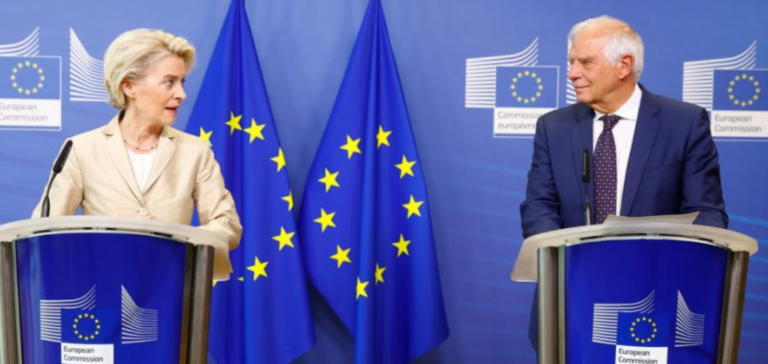The European Union (EU) is stepping up its arsenal of sanctions against Russia, taking a tougher line against circumvention of existing measures, including the G7 oil price cap. Ursula von der Leyen, President of the European Commission, has announced the imminence of a 12th package of sanctions against Russia, aimed at tightening the price cap on Russian crude oil set at $60/b by the G7.
Lukoil’s role in circumventing sanctions
At a press briefing on November 9, Arianna Podesta, deputy spokeswoman for the EU Commission, underlined the preparations for a new round of sanctions.
“This package will include elements that will enable us to combat evasion of sanctions”.
she declared. This announcement follows the publication of a report by NGOs, led by Global Witness, alleging that Lukoil had circumvented EU sanctions. According to tanker tracking data, Lukoil exported fuel oil from Burgas to Rotterdam, probably derived from Russian crude.
Impact of Russian Ural Oil on the World Market
Although Lukoil did not immediately respond to requests for comment, Litasco, its trading subsidiary, said it complied with all applicable laws and regulations, including the G7 price cap rules. Since the start of the conflict in Ukraine, the Burgas refinery has processed almost exclusively Russian Ural crude, whose price has been reduced by up to $40/b compared with the world benchmark Dated Brent, following Moscow’s invasion. However, the discount on Urals has been reduced since mid-2022.
Role of Bulgarian Exemptions in the Oil Trade
Under EU sanctions, Bulgaria is exempt from importing and processing Russian oil until the end of 2024. Additional derogations allow Bulgaria to export certain refined products derived from Russian crude to Ukraine and other countries, according to historical trade quotas, for environmental and safety reasons. Daniel Sheridan Ferrie, EU spokesman for EU-UK agreements and financial services, explained that exports are managed on a mass balance basis.
Political Pressure for Tougher Sanctions
The Bulgarian authorities, working closely with the EU, are responsible for applying these sanctions. In September, the Bulgarian National Assembly voted to end Russian crude imports by November 2024, after months of political debate over lifting Bulgaria’s exemption from EU sanctions.
Political pressure on the US and EU to step up enforcement of oil sanctions against Russia has intensified, particularly since spot prices for Russian Urals crude broke through the $60/b ceiling in July. Russian oil revenues have also risen, with Moscow successfully redirecting its oil to non-Western customers thanks to a fleet of shadow tankers. Until recently, the application of sanctions by the USA and the EU was moderate, encouraging increased trade in Russian oil.
By stepping up sanctions, the EU aims to further restrict Russia’s access to the global oil market, while reducing its ability to circumvent price caps. This move underlines Europe’s determination to limit Russia’s economic influence and minimize its potential to finance its military activities.






















